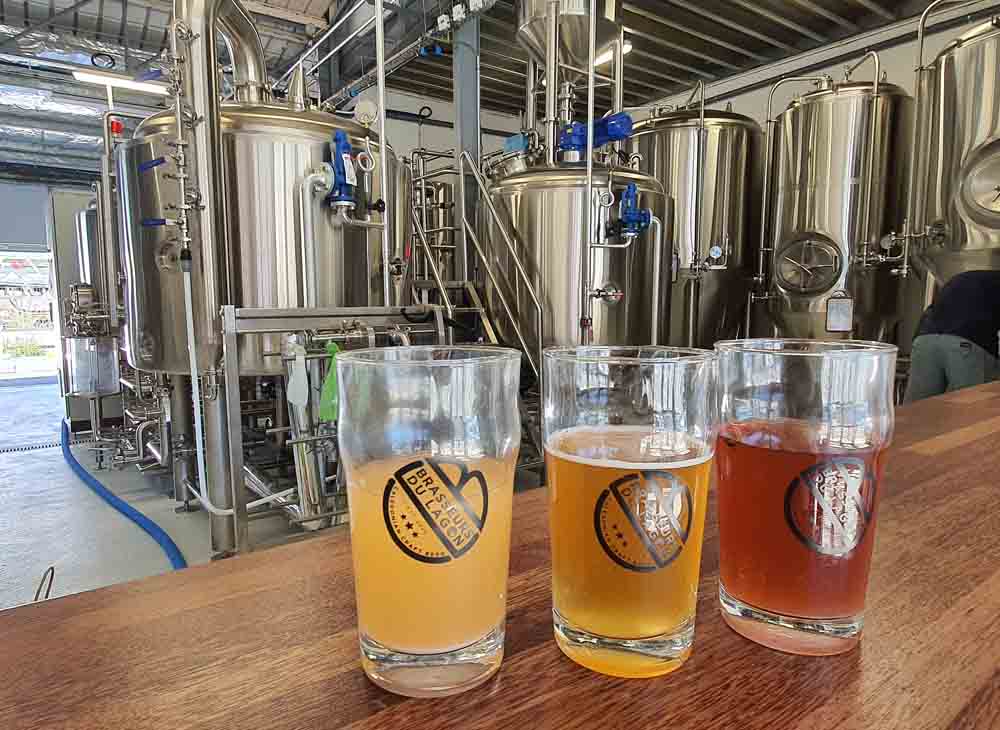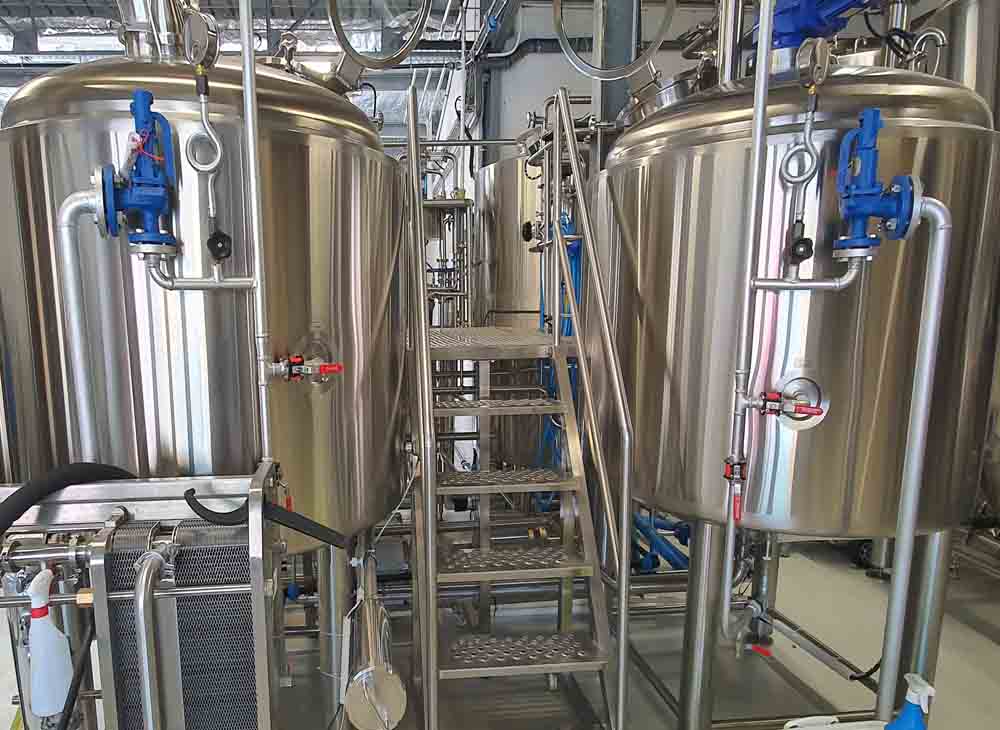Starting a Craft Brewery or Brewpub or Nanobrewery
- Jul 01, 2021
- 69
- tiantai
Opening a craft brewery can be the next step in turning your hobby into a side beer brewing business. What starts as a side project can turn into a small or large beer brew business, depending on your craft brewery start up costs.
Due to various state laws, different market segments exist in the craft beer business. Most state laws prohibit the sale of beer directly to the consumer. This restriction forces the beer brewery to jump through hoops to get their product to the consumer.
Some states, however, allow craft breweries to act as a wholesaler, providing their beer directly to the retailer and even allowing breweries to sell to the consumer directly. These more lenient states have created different categories of breweries that help categorize them by annual beer production and the percentage of beer sold on-site.


What are the most common types of beer breweries?
1. Craft Brewery
2. Nano Brewery
3. Brewpub
4. Farm Brewery
5. Contract Brewing Company
Each type of brewery will come with its own rules and regulations of how it is classified. First, let’s define a brewery.
What is a Brewery?
The largest types of beer breweries – sometimes called macro breweries – are the breweries that have an annual production of over six million barrels of beer per year.
According to brewery statistics, four companies operate over 50% of the beer market and are considered the largest breweries in the world. Anheuser-Busch InBev, SABMiller, Heineken International, and Carlsberg are the largest breweries. These large breweries operate on a global scale, shipping their products to customers across the world. Anheuser-Busch owns the biggest brewery in the world.
Large beer breweries will come with a large staff as well. In the United States, over 69,000 people work at a brewery. Brewery employees increased by nearly 250% since 2001. These breweries employ staff to handle the brewing process, administrative staff, logistics of distribution, teams for marketing and finance, and every role imaginable required for a business to operate.
What is a Craft Brewery?
Craft beer breweries define themselves as being small and independent.
A craft beer brewery is a brewery that produces fewer than 6 million barrels of beer. Previously, the limit was 2 million barrels per year; however, the definition of “small” was changed to reference only 3% of the market. This new definition means that as the market output grows, a craft brewery can grow as well and is still considered craft. Unlike the definition of small, “independent” is consistent with its original meaning. An independent brewery is a brewery that has 25% or less of it owned by anyone not identified as a craft brewer. If a larger, macro brewery were to purchase more than 25% of a craft brewery, it is no longer considered a craft brewery. Craft breweries operate with a focus on innovation. Craft brewers take unique twists on brewing and develop new recipes. Craft brewers may try using non-traditional ingredients, outside of the typical malted barley.
What is a Nanobrewery?
A nano brewery is the smallest type of brewery. There is no defined quantity of brewing for what establishes a nano brewery, but the most accepted definition is a brewery that produces in batches of three barrels or smaller. There are a few ways that nano breweries begin.
If brewers are planning on increasing to a larger scale, a nano brewery is a great option to build a proof of concept that will allow them to test the market without the need for much capital.
_ Hobbyists may begin a nano brewery as their hobby turns into a side business.
_ Restaurants may begin brewing house beer to sell to their customers in addition to food.
_ Nano breweries require smaller capital to begin, but profits will be lower as well. The work necessary to brew three barrels of beer is the same as is needed to brew seven to ten, but nano breweries are unable to purchase the bulk items making creating thin margins.
What is a Brewpub?
A brewpub is a brewery that sells its own beer along with food or beer from other breweries. Simply put, a brewpub is a brewery with a restaurant attached.
A brewpub is a great opportunity for a restaurant to break into the brewery industry. Customers that may not usually be willing to go to a brewery have the chance to sample a brew that is unique to the brewpub. While other types of breweries might expand their distribution across the state or multiple states, a brewpub serves primarily to local areas. By law, brewpubs are only labeled as such if they sell 25% or more of its beer on-site. Still, depending on state laws, brewpubs can sell their products “to-go” or distribute to smaller off-site locations.
What is a Farm Brewery?
A farm beer brewery is to beer as a vineyard is to wine. Farm breweries make and sell beer from the ingredients grown on their farm. Farm breweries originated from farmers who would brew low ABV beer for their field workers. The requirement for ingredients to be raised on the farm can vary from state to state, with some states only requiring 60% of each ingredient grown instate. Farm breweries receive agriculture benefits that aren’t available under standard brewery laws. With a farm brewing license, brewers do not need an additional liquor license or permit to serve beer by the glass. Depending on the state, farm breweries can sell their beer to retailers and local pubs and restaurants. Ingredients typically grown on a Farm Brewery include barley, hops, wheat, rye, and corn.
A farm beer brewery is to beer as a vineyard is to wine. Farm breweries make and sell beer from the ingredients grown on their farm. Farm breweries originated from farmers who would brew low ABV beer for their field workers. The requirement for ingredients to be raised on the farm can vary from state to state, with some states only requiring 60% of each ingredient grown instate. Farm breweries receive agriculture benefits that aren’t available under standard brewery laws. With a farm brewing license, brewers do not need an additional liquor license or permit to serve beer by the glass. Depending on the state, farm breweries can sell their beer to retailers and local pubs and restaurants. Ingredients typically grown on a Farm Brewery include barley, hops, wheat, rye, and corn.
What is a Contract Brewing Company?
When a brewer is unable to keep up supply, they may consider contract brewing. Contract brewing is an agreement for a company to brew and package their beer on equipment that they do not own, similarly to how chefs utilize commissary kitchens. Contract brewing agreements can vary widely based on the relationship between the parties. In some arrangements, the contracting brewing company will be a full partner in the brewing process, providing the brewery equipment, recipes, distribution. In other arrangements, the contracting brewing company may act only as a marketing company, providing all the branding and distribution but leaving the actual production and packaging to the other partner. Contract brewing can be an excellent option for both companies and brewers. For brewers that are attempting to build their brand identity, a corporate partner might be what they need. If a brewer needs to increase scale but need assistance in packaging, the host brewery might only be limited to that. Ultimately the relationship between the partners in contract brewing is a business relationship, and the partners must decide what their responsibilities are.
Interested in starting your own brewery? As a craft brewery equipment manufacturer, Tiantai beer equipment would like to supply any suggestions or recommendations if you need.
Derrick
Sales Manager
Tiantai Beer Equipment
Email:[email protected]
Derrick
Sales Manager
Tiantai Beer Equipment
Email:[email protected]




